
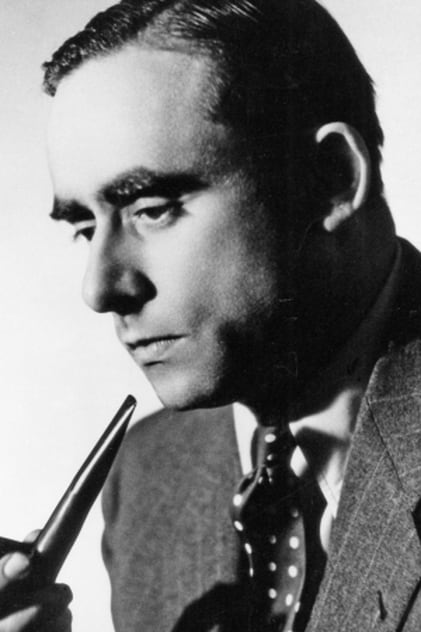
Henri-Georges Clouzot
Born: November 20, 1907
Died: January 12, 1977
in Niort, Deux-Sèvres, France
Died: January 12, 1977
in Niort, Deux-Sèvres, France
Henri-Georges Clouzot (August 18, 1907 – January 12, 1977) was a French film director, screenwriter and producer. He is best remembered for his work in the thriller film genre, having directed The Wages of Fear and Les Diaboliques, which are critically recognized to be among the greatest films from the 1950s. Clouzot also directed documentary films, including The Mystery of Picasso, which was declared a national treasure by the government of France.
Clouzot was an early fan of the cinema and, desiring a career as a writer, moved to Paris. He was later hired by producer Adolphe Osso to work in Berlin, writing French-language versions of German films. After being fired from German studios due to his friendship with Jewish producers, Clouzot returned to France, where he spent years bedridden after contracting tuberculosis. Upon recovering, Clouzot found work in Nazi occupied France as a screenwriter for the German-owned company Continental Films. At Continental, Clouzot wrote and directed films that were very popular in France. His second film Le Corbeau drew controversy over its harsh look at provincial France and Clouzot was fired from Continental before its release. As a result of his association with Continental, Clouzot was barred by the French government from filmmaking until 1947.
After the ban was lifted, Clouzot reestablished his reputation and popularity in France during the late 1940s with successful films including Quai des Orfèvres. After the release of his comedy film Miquette et sa mère, Clouzot married Véra Gibson-Amado, who would star in his next three feature films. In the early and mid-1950s, Clouzot drew acclaim from international critics and audiences for The Wages of Fear and Diabolique. Both films would serve as source material for remakes decades later. After the release of La Vérité, Clouzot's wife Véra died of a heart attack and Clouzot's career suffered due to depression, illness and new critical views of films from the French New Wave. Clouzot's career became less active in later years, limited to a few television documentaries and two feature films in the 1960s. Clouzot wrote several unused scripts in the 1970s and died in Paris in 1977.
Description above from the Wikipedia article Henri-Georges Clouzot, licensed under CC-BY-SA, full list of contributors on Wikipedia
Clouzot was an early fan of the cinema and, desiring a career as a writer, moved to Paris. He was later hired by producer Adolphe Osso to work in Berlin, writing French-language versions of German films. After being fired from German studios due to his friendship with Jewish producers, Clouzot returned to France, where he spent years bedridden after contracting tuberculosis. Upon recovering, Clouzot found work in Nazi occupied France as a screenwriter for the German-owned company Continental Films. At Continental, Clouzot wrote and directed films that were very popular in France. His second film Le Corbeau drew controversy over its harsh look at provincial France and Clouzot was fired from Continental before its release. As a result of his association with Continental, Clouzot was barred by the French government from filmmaking until 1947.
After the ban was lifted, Clouzot reestablished his reputation and popularity in France during the late 1940s with successful films including Quai des Orfèvres. After the release of his comedy film Miquette et sa mère, Clouzot married Véra Gibson-Amado, who would star in his next three feature films. In the early and mid-1950s, Clouzot drew acclaim from international critics and audiences for The Wages of Fear and Diabolique. Both films would serve as source material for remakes decades later. After the release of La Vérité, Clouzot's wife Véra died of a heart attack and Clouzot's career suffered due to depression, illness and new critical views of films from the French New Wave. Clouzot's career became less active in later years, limited to a few television documentaries and two feature films in the 1960s. Clouzot wrote several unused scripts in the 1970s and died in Paris in 1977.
Description above from the Wikipedia article Henri-Georges Clouzot, licensed under CC-BY-SA, full list of contributors on Wikipedia
Movies for Henri-Georges Clouzot...
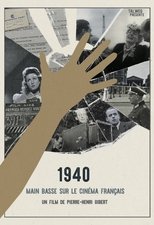
Title: 1940: Taking over French Cinema
Character: Self (archive footage)
Released: May 19, 2019
Type: Movie
Paris, 1940. German occupation forces create a new film production company, Continental, and put Alfred Greven – producer, cinephile, and opportunistic businessman – in charge. During the occupation, under Joseph Goebbels’s orders, Greven hires the best artists and technicians of French cinema to produce successful, highly entertaining films, which are also strategically devoid of propaganda. Simultaneously, he takes advantage of the confiscation of Jewish property to purchase film theaters, studios and laboratories, in order to control the whole production line. His goal: to create a European Hollywood. Among the thirty feature films thus produced under the auspices of Continental, several are, to this day, considered classics of French cinema.

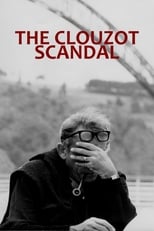
Title: The Clouzot Scandal
Character: Self (archive footage)
Released: October 17, 2017
Type: Movie
Great filmmakers claim the artistic influence of French director Henri-Georges Clouzot (1907-1977), a master of suspense, with a unique vision of the world, who knew how to offer both great shows and subtle studies of characters. Beyond the myth of the tyrannical director, a contrasting portrait of a visionary, an agitator, an artist against the system.

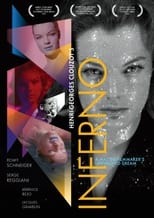
Title: They Saw Inferno
Character: Self (archival footage)
Released: April 12, 2010
Type: Movie
A wonderful documentary that sheds additional light on the fascinating project ‘Inferno’ was, as well as how those who were involved with it reacted to it during the shooting process. A riveting adjunct to the main feature, offering a glut of interviews with various people associated with the production, and presenting quite a bit more production data, as well as some unseen footage from Clouzot's shoot.

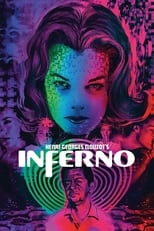
Title: Henri-Georges Clouzot's Inferno
Character: Self (archive footage)
Released: October 1, 2009
Type: Movie
In 1964, Henri-Georges Clouzot's production of L'Enfer came to a halt. Despite huge expectations, major studio backing and an unlimited budget, after three weeks the production collapsed. This documentary presents Inferno's incredible expressionistic original rushes, screen tests, and on-location footage, whilst also reconstructing Clouzot's original vision, and shedding light on the ill-fated endeavor through interviews, dramatizations of unfilmed scenes, and Clouzot's own notes.

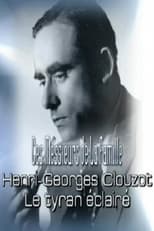
Title: Henri-Georges Clouzot: An Enlightened Tyrant
Character: Self (archive footage)
Released: January 1, 2004
Type: Movie
Documentary about the life and career of French director Henri-Georges Clouzot.


Title: Carl Th. Dreyer und Gertrud
Released: January 1, 1994
Type: Movie
Documentary about Carl Theodor Dreyer and his film Gertrud.

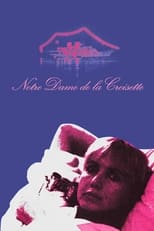
Title: Notre Dame de la Croisette
Character: Self (archive footage) (uncredited)
Released: February 23, 1983
Type: Movie
A woman goes to Cannes and, lost in its chaos and unable to obtain tickets, ends up watching it on television from her hotel room.

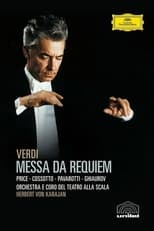
Title: Herbert von Karajan: Verdi: Requiem
Released: January 1, 1967
Type: Movie
Acknowledged to be the finest Karajan recording of this overwhelming sacred masterpiece — “electrifying ... with the Italian chorus and orchestra singing and playing their hearts out ... a his-toric document” (Gramophone). This 1967 performance features four of the 20th century's greatest Verdi singers — Price, Cossotto and Ghiaurov were at the peak of their careers, while the young Pavarotti was still comparatively unknown (though not for long).

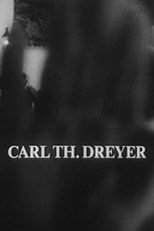
Title: Carl Th. Dreyer
Character: Self
Released: November 14, 1966
Type: Movie
At the world premiere of "Gertrud" in Paris, December 1964, Dreyer is greeted by many celebrities of the French cinema: Clouzot, Langlois, Truffaut, Godard, Anna Karina. Afterwards Dreyer delivers short comments on the style of each of his films.

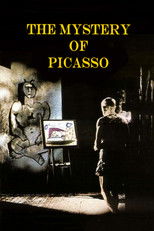
Title: The Mystery of Picasso
Character: Self (uncredited)
Released: May 18, 1956
Type: Movie
Using a specially designed transparent 'canvas' to provide an unobstructed view, Picasso creates as the camera rolls. He begins with simple works that take shape after only a single brush stroke. He then progresses to more complex paintings, in which he repeatedly adds and removes elements, transforming the entire scene at will, until at last the work is complete.

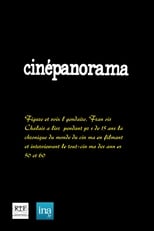

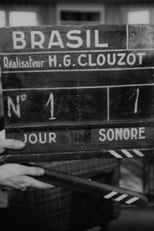
Title: Brasil
Character: Self
Released: December 31, 1950
Type: Movie
Abandoned documentary on the country Brazil which director Clouzot wanted to make while on honeymoon with his wife Véra Clouzot whose of Brazilian origin. Only an introductionary section set in Paris was ever filmed.
